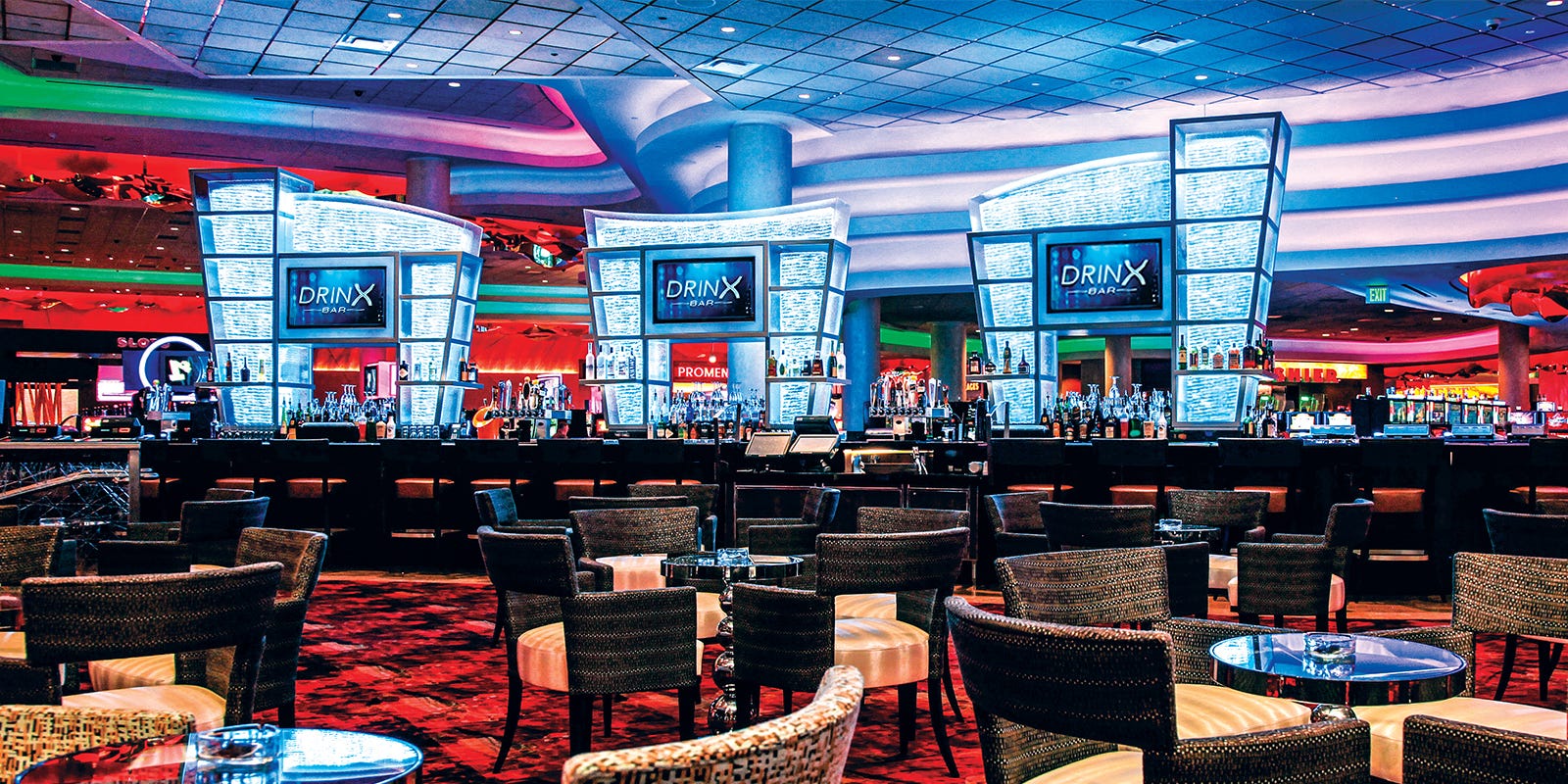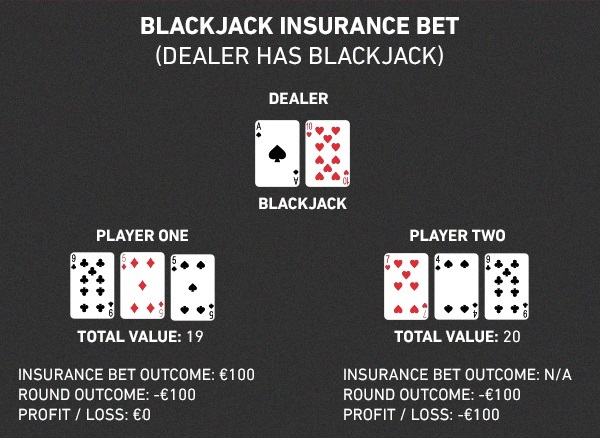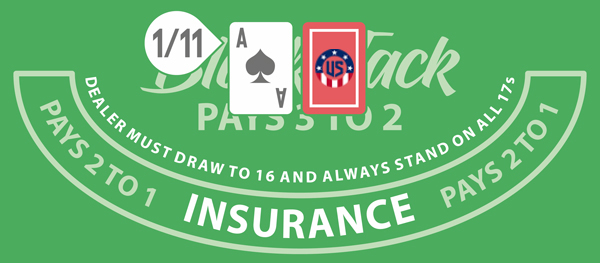Unlike the game rules and strategies, many players are familiar with the insurance the game offers them. For those who are not, insurance is a side bet and it can be taken only if the dealer’s up card is an ace.
It is separate from the rest of the players’ bets and its purpose is to boost the casinos’ margin at their blackjack tables. In order to insure their hand, players need to wager equal to half of their initial bet placed next to their cards in the section labelled as insurance.
Blackjack Terminology. Learn what happens when you Bust, Double Down, Hit, Buy Insurance, Push, Stand or Surrender your hand in the game of blackjack. Learn the game play by knowing what each of the above means and how they affect your game play at the blackjack tables. Part 4 – Insurance and Surrender Insurance. Insurance in blackjack is often misunderstood by players, and is a big money-maker for casinos. Naming this side-bet 'insurance' was a brilliant marketing ploy, and some otherwise solid players will frequently make this bad bet to 'insure' when they have a good hand.
Players can take advantage of the insurance straight after they receive their first two cards and as already mentioned, the up card of the dealer needs to be an ace.
During this stage is the time when the dealer will ask whether any of the players would like insurance. Thus, every gambler should consider such a situation very carefully in advance in order to be as prepared as possible for it.
How Does the Insurance Bet Work
Players can accept or decline insurance before they have made any other playing decisions when the dealer shows an ace. To accept insurance, they must place an additional wager equal to half their initial bet although some casinos allow you to buy partial insurance for less. So if your main bet is £10, insurance will cost you £5 more.
The dealer would then look under their hole card to see whether it has a value of ten to give them a blackjack. There are several possible outcomes for a player who accepts insurance.
The first possibility is when the dealer doesn’t get blackjack. In this case, players lose the insurance bet which is £5 but for having a blackjack, they will get paid 3 to 2. The second possible situation – if the dealer has blackjack too, players get paid for their insurance 2 to 1. The player breaks even because their main wager loses in this instance.
Poker Buy Insurance
Another possible scenario is when both the dealer and the player have blackjacks. The two hands push and the player earns an amount equal to what they have initially wagered thanks to the insurance bet.
Potential dealer blackjacks are not always insurable. The dealer can also obtain this powerful hand when their upcard has a value of ten. Under the US ruleset, the dealer would peek under their hole card to see it is an ace for a blackjack without offering insurance to players.
The peek occurs before anyone has made any playing decisions. Provided that the dealer has an ace as their hole card, everyone at the table immediately loses except for the players who also have blackjacks for a push.
Some gambling venues enable players to insure their hands partially for less than half of the original wager. Well-versed blackjack players sometimes buy partial insurance for the purpose of reducing the variance of the game. For the uninitiated, the term variance refers to the swings inherent to casino games. These can be extremely violent in blackjack.
Insurance and Basic Strategy
Players who cannot count cards and rely only on basic strategy should never take insurance despite some people claiming otherwise. It is for this reason insurance is not even included in basic strategy charts. First of all, you insure or protect nothing by making this wager. Naming the bet “insurance” is merely a sly marketing idea on behalf of casinos that improves their edge against misguided patrons.
This is simply an irrelevant proposition bet on whether or not the hole card of the dealer will have a value of ten when they have an ace showing. The side bet has nothing to do with your main wager. It does nothing for your hand’s odds of winning against the dealer.
It is true that you will recoup the loss of your main wager and break even if you do not have a blackjack. However, provided that the dealer also does not have a natural, your insurance wager will lose and what is worse, there is no guarantee you will be successful with your main wager.
Insurance is a poor proposition for those who use basic strategy because it puts them at a huge disadvantage over the long term. Furthermore, said disadvantage is not difficult to calculate. Insurance becomes a break-even wager only on condition one per every three dealt cards has a value of ten, or a little over 33% of the time.

The thing is a single deck of 52 cards contains only 16 cards that are assigned a value of ten, or roughly 30.76% of the deck’s composition. It follows a ten-value card occurs a little more rarely, or once per every 3.25 cards. To estimate the terrible effect insurance has on players’ bankroll, you can simply calculate the expectation of this side bet.
Assuming you play with one deck and have received two non-tens, there will be 16 ten-valued cards out of the remaining 49 cards. The number has dropped from 52 to 49 to account for your two non-tens and the dealer’s ace. The probability of the dealer having a natural is now 16/49 whereas the likelihood of them having any other card stands at 33/49.

For convenience’s sake, we shall assume you buy insurance for £1. You will win £2 with the side bet if the dealer has a natural. The expected value of the insurance wager is therefore equal to (16 / 49 x £2) + (33 / 49 x -£1) = 0.653061 + (-0.673469) = -0.20408. If you multiply this result by 100, you get the house edge of the insurance bet for single-deck blackjack, or 2.04%.
Simply put, the insurance bet costs players approximately £2 per every £100 they spend on it in single-deck games. Things get worse for those who play shoe-dealt blackjack. The house edge percentage for insurance increases with each deck one adds to the game. Eight-deck variations are the worst in this respect since the casino’s advantage surges to a little over 7% there.
The insurance wager will win around 30% of the time when the dealer gets a blackjack. The remaining 70% of the time it will lose. Assuming you are offered insurance on ten hands and decide to buy it for £1 each time, you will win £2 three out of ten times and lose £1 seven out of ten times. You will earn £6 whereas your losses £7, for a net loss of one unit. This further confirms insurance is a terrible bet for basic strategists.
Insurance Fallacy #1 – Blackjacks Are Worth Insuring
Naturally, casinos are very keen on insurance, so much so that some establishments even require their dealers to recommend players to make this side bet when receiving blackjacks. The catch here is that unsuspecting patrons are led to believe they are “protecting” their naturals this way. They are not. The truth is blackjacks are some of the worst hands to insure and here is why.
Let’s imagine you start with a fresh deck and make a £10 bet. You receive K-A but the dealer’s exposed card is an ace. You decide to buy insurance for £5. There are two possible scenarios here. The first one is when the dealer indeed has a ten in the hole, in which case you win 2 x £5 = £10. The second scenario is for the dealer not to have a natural, so you lose £5 from your insurance, and win £15 for your blackjack.
It turns out insuring a blackjack is basically the same as agreeing on an even-money payout for your natural. Either way, you will end up £10 ahead. The main trouble is you will earn fewer profits on average.

Another thing that should be taken into account is that the probability for a dealer blackjack decreases when the player gets a natural since the number of tens in the deck drops. So does the expected value of the insurance wager.
Let’s have a look at players’ expectation for this side bet when they get dealt a blackjack from a reshuffled single deck. A person is dealt Q-A against a dealer with an exposed ace. The number of tens has now dropped to 15, with 49 cards remaining to be dealt. The expectation becomes (15 / 49 x £2) + (34 / 49 x -£1) = 0.612244 + (-0.693877) = -0.081632 for a house edge of 8.16%. It turns out insuring blackjacks is far worse than taking insurance on “bad” hands.
Insurance Fallacy #2 – Always Buy Insurance with Pat 20
Another common misconception among less skilled blackjack players is “good” hands are worth taking insurance. And indeed, some people never miss the opportunity to insure their pat 20s (hands that contain two ten-value cards). The sad reality is pat 20 is, in fact, the worst possible hand to insure.
The reason is similar to that for insuring blackjacks. Only it gets even worse here because the player has already used up two of the cards that can give the dealer a blackjack, instead of one as is the case in the previous scenario we discussed. This causes the expected value of the insurance wager to plummet even further down.
Buy Insurance In Blackjack
There are now 14 ten-value cards that remain in play out of 49 since 3 cards have already been dealt, eg. K-Q versus the dealer’s ace. Therefore, the expectation of insurance is equal to (14 / 49 x £2) + (35 / 49 x -£1) = 0.571428 + (-0.714285) = -0.142857. So in essence, the house advantage jumps to 14.28% when players take insurance on strong hands like pat 20.
Doubling Down
Splitting Pairs
Blackjack Basic Strategy
Blackjack Hand 8 or 9
Blackjack Hand 10 or 11
The Even-Money Payout
Some casinos do away with insurance in certain cases to speed up the pace of the game, which in turn increases the hourly profits they generate from their blackjack tables. They achieve this by offering players even money for their blackjacks instead of the standard payout of 3 to 2. In reality, the even-money payout works the same way as the insurance side wager.
Like insurance, even money is offered whenever the dealer’s upcard is an ace. The difference here is this occurs only when the player holds a blackjack. If the player accepts the offer, the dealer will immediately remove their hand and pay them out at odds of 1 to 1. Notice the transaction occurs before the dealer peeks under their hole hard for a natural.
Many blackjack rookies jump at the opportunity to accept the offer, reasoning they will receive an automatic “guaranteed” payout regardless of what the dealer ends up having. Unfortunately, this is the same as buying insurance and is equally detrimental to your expectation in the long term.
If you accept even money for your blackjack with a £1 main bet, you will receive another £1 on top of your wager, i.e. you will have a 100% return in this instance. Provided that you decline the even-money offer, your blackjack will yield an expected value of (15 / 49 x £0) + (34 / 49 x (+£1.5)) = 0 + 1.040816 = £1.04.
In other words, you will gain four pence per each wagered unit if you decline even money. Some players might laugh at the prospect of gaining several pence more with their blackjacks but as little as the difference is, you will still generate more profits in the long run.
Blackjack When To Buy Insurance
Additional Things to Consider

Additionally, a few more important things need to be taken into account – the number of the included decks and the cards that are about to be dealt.
Some players who use the card counting strategy, point out that in case there aren’t many ten-value cards left in the deck and they have 20, they will have insurance on their hand. Their logic is based on the fact that the dealer is more unlikely to have a 10 in such a deck.
Basic strategists make their decisions based on a neutral deck. Their strategy relies only on the information about three cards – those dealt to their hand and the exposed card of the dealer. Card counters, however, follow the cards that leave the deck or shoe, which gives them an accurate idea about the composition of the remaining cards.
In case there is a surplus of tens left to be dealt, insurance becomes a favourable bet and the card counter will take it regardless of whether they have a blackjack, a 20, or a total of 7. And the opposite, if there is a surplus of low cards, the card counter will decline insurance as the probability of a dealer blackjack has dropped.
As for basic strategy players, they should never consider buying insurance or taking even money for their blackjacks. Of course, this explanation sounds reasonable enough and after all the choice is up entirely to the players.
Conclusion
Before players make up their mind regarding the insurance, they need to take into account the above mentioned reasons and the advice we gave them. It is recommended players to be as prepared as possible before they start the game, if their aim is to win. You must know what you are up against or else you risk making bad decisions that are guaranteed to cost you greater losses in the long term.
If you are a recreational player and intend to base your plays solely on basic strategy, you should forget all about insurance on all hands, blackjacks included. Consider this wager only on condition you have learned how to accurately count cards. This would allow you to discern the spots when the composition of the deck or shoe justifies insuring your hands.
